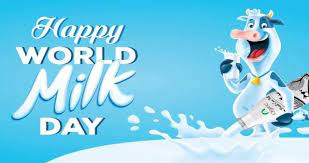The Director-general, Raw Materials Research and Development Council (RMRDC), Prof. Ibrahim Hussaini Doko, has said that Nigeria is the largest importer of processed milk In West Africa, spending an average of N1.73billion per annum for milk importation.
The DG stated this yesterday during the World Milk Day Conference 2021, with the theme: ‘Strengthening the Local Dairy Sector in Nigeria: Addressing the Pain-Points for Sustainable Impact’, organised by the Commercial Dairy Ranchers Association of Nigeria (CODARAN) in collaboration with Integrated Dairies and other partners, in Abuja.
Represented by the deputy director and chairman dairy, RMRDC, Dr Mary Abiaeye, Ibrahim regretted that despite great potential to enhance milk production through improved technology, the country’s domestic production does not meet daily capacity utilisation for the dairy companies and consumer demand.
He noted that Nigeria’s national dairy output/annum is 700,00MT, while national demand is approximately 1.3million MT/annum, leaving a gap of 600,000MT.
This could also be as a result of low genetic potentials of indigenous breeds of cattle (low growth rate and milk yield) possibly due to poor management system and stress of endless trekking.
However, in promoting the development and optimal utilisation of Nagana’s raw materials for sustainable industrial growth, Ibrahim said the RMRDC has admitted dairy and dairy products as one of its strategic projects to be promoted for national development.
In the dairy value chain, the DG said RMRDC has vigorously pursued upgrade of indigenous dairy cattle through insemination of indigenous dairy breed with imported improved exotic semen, in collaboration with other key stakeholders.
Identifying the pertinent challenges hampering the growth of the sub-sector, the DG noted that the challenges were being addressed through artificial insemination using exotic hybrid semen, installation of solar powered milk for preservation of collected milk among others.
Meanwhile, CODARAN has called for ranching of cows, saying open grazing is not the way to go if the country must meet its demand in the sector.
The executive director, CODARAN, Dianabasi Akpainyang, said “You can’t be carrying cows around and you want to get optimum production. Ranching is the way to go if we must meet our demand,” he said.
Akpainyang also called on the government to tackle the issue of insecurity in the country especially in Northern Nigeria, as well as providing enabling business environment.
“Getting milk from rural communities is always a major challenge since the milk producers are mainly in the communities, getting to them is challenging due to insecurity. So government has to put security in place for business.
“Road infrastructure and electricity are also part of the challenges because once milk is extracted from the cow, it gets bad in 30 minutes. So we need storage facilities, we won’t use fire to power cooling van, we need electricity.
In his keynote address, Food and Agriculture Organisation (FOA) representative in Nigeria and ECOWAS, Mr. Fred Kafeero, noted that security challenges especially in the North East was propagating food insecurity and malnutrition as well as a disincentive for domestic and international investors.
According to him, the need to address the situation and restore stability is urgent.
On poor rural infrastructure, Kafeero urged the federal and state governments to step up investments to enable the country reverse the high transportation cost, poverty and poor power supply as these impact the sector.

